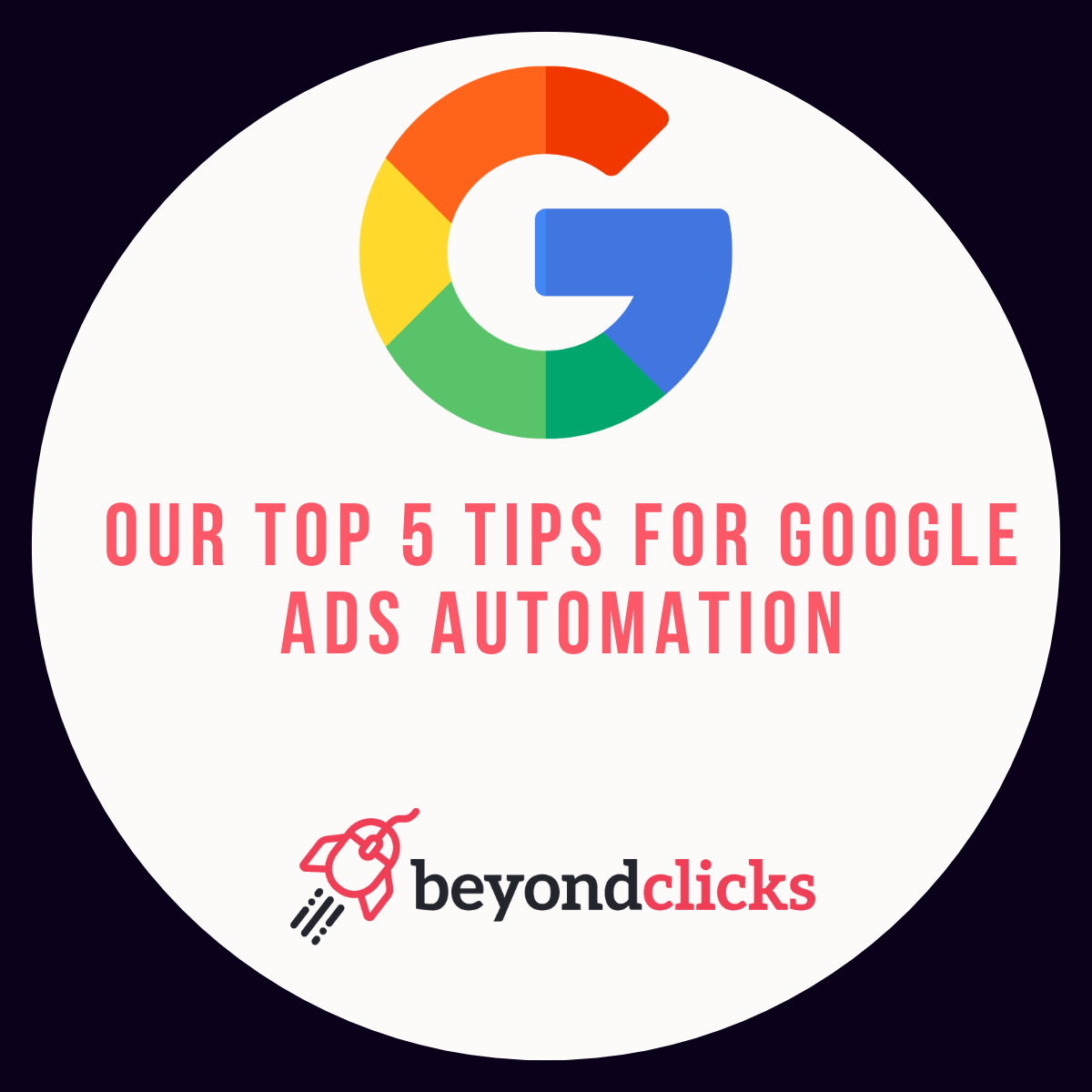Will Automation Improve Your Google Ads Performance?
The team and I have been reading a lot of posts recently relating to Google Ads automation and broad match keywords.
We wanted to share our views and learnings on this.
Over 3 years ago we attended a Google event with the ‘top’ UK agencies and advertisers.
The theme of the event was automation and to ‘how to future proof your business’. From this event, it was clear the path Google were taking and how they see advertisers gaining efficiency (while of course gaining a lot of advertiser data / learnings!).
The key take away for us was to build tech / systems / processes that compliment Google ads automation to generate the best results. Some companies were against the change, ‘giving Google control will be bad, versus ‘manual’ will generate better results etc.’
At Beyond Clicks, we didn’t / haven’t jumped straight in and adopted fully automated strategies with broad match keywords across all campaigns.
Each set up depends on multiple factors and we know in certain circumstances there are not enough signals to make it happen. Plus, you need to know what ‘good’ looks like to know if automated / broad is generating efficient actions for your business type.
So after literally years of testing, these are our top 5 tips on the do’s and don’t’s of Google Automation:
1. Signals Signals Signals!
Automation is an algorithm and is based on the signals you give it. If anything changes – such as landing page design, a conversion type stops firing, a callback request is removed, an online quote button is added – it will go wrong!
Our advice is to go back to manual, build up some data and go again. When conversions dip for whatever reason, the algorithm will stop showing ads as often, your market share will dip and activity will decline.
Automation completely relies on the signals it is given. Google will not know you’ve removed a form from the website, or the conversion has stopped firing for an online action just that the desired actions are not being generated. This will cause activity to ‘automatically’ reduce.
2. Automated strategies are more work for the ppc manager – not less.
Be prepared for big fluctuations and having to react quickly / monitor closely. We built our own tech that monitors Google & Bing Ads campaigns to check for spikes in cost per action and cost per click.
Similar checks can be set up via scripts or alerts, our platform is linked via the API’s.
3. Broad Match
We spent years testing this keyword match type, and until 2022, (in our experience) it was not the right thing to do. But before you start adding it, only use broad on fully automated bidding strategies.
Plus, assign resource to fully build out negative keyword lists, that include brand terms prior to launch.
You will also need to optimise search terms at least once a day and use the data obtained to build out campaigns / adgroups.
4. Patience and knowing when to hold your nerve!
Initially, there will be fluctuations and you do need to bear in mind that there may be a more efficient route (as found in our testing).
5. Understanding the value of each action (conversion)
It is key that the advertiser identifies individual values and communicates this information with Google. For example, a phone call to the sales line might be worth more than an online quote.
We hope this helps and we will keep you updated on future advice, tips and tricks.
If you’d like to know more on how Beyond Clicks could improve the PPC results of your business please contact us.
